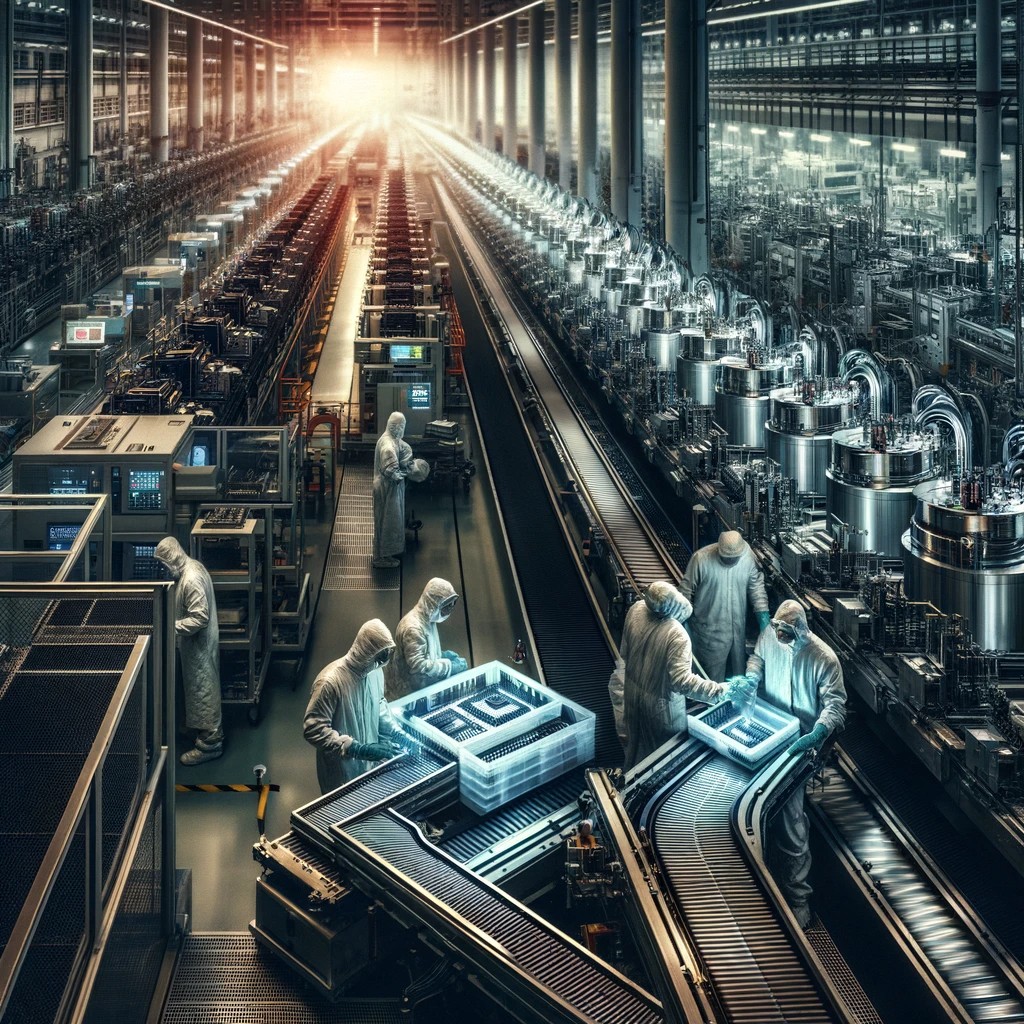To address the burgeoning demand for semiconductors and simultaneously scale back its dependence on industry giant Nvidia, OpenAI’s Chief Executive, Sam Altman, is actively engaged in discussions with influential Middle Eastern investors and prominent chip fabricators, including Taiwan Semiconductor Manufacturing Co (TSMC). The ambitious chip venture aims to develop cutting-edge chips crucial for training and constructing artificial intelligence (AI) models. The talks have sparked interest from high-profile investors in the United Arab Emirates, notably Sheikh Tahnoon bin Zayed al-Nahyan, as Altman seeks financial backing for this innovative chip project.
Altman’ssStrategic chip venture talks unfold
Altman has initiated conversations with some of the wealthiest investors in the region, primarily engaging with Sheikh Tahnoon bin Zayed al-Nahyan of the United Arab Emirates. Sheikh Tahnoon, a key figure in Abu Dhabi’s business and political landscape, holds significant influence as the national security adviser to the UAE’s president, Sheikh Mohammed bin Zayed al-Nahyan. Discussions also extend to a potential partnership with TSMC, a renowned Taiwanese chipmaker, to fabricate the advanced chips essential for OpenAI’s AI models.
OpenAI and TSMC have refrained from commenting on the ongoing talks. Bloomberg initially reported Altman’s discussions over this potential chip venture with Middle Eastern investors. With Sheikh Tahnoon being a pivotal figure overseeing vast business empires and chairing influential state investment funds, the collaboration holds the promise of a strategic alliance between OpenAI and the UAE’s dynamic business landscape.
Navigating the financial landscape
The financial scope of Altman’s venture remains undisclosed, but the complexities and expenses associated with designing and developing cutting-edge chips cannot be underestimated. As OpenAI aims to compete with Nvidia, a behemoth with a market capitalization approaching $1.5 trillion, the financial investment required is expected to be in the billions of dollars. The semiconductor market has become a focal point for startups in Silicon Valley, with a handful of leading chipmakers playing a pivotal role in the race for AI supremacy.
Semiconductors, particularly Nvidia’s graphics processing units (GPUs), have been instrumental in fueling the artificial intelligence revolution. Companies like OpenAI heavily rely on these powerful chips to train and run their large language models. Yet, the scarcity of semiconductor supply, controlled by a select few large companies, has intensified the competition among tech giants vying for these crucial components.
OpenAI’s future endeavors
OpenAI is currently developing a new iteration of its AI model, anticipated to be a significant upgrade on its existing product, GPT-4. As each model upgrade increases reliance on partner chips, Altman’s move to establish a chip venture aligns with OpenAI’s forward-looking strategy. The question remains: Will Altman’s chip venture be integrated as a subsidiary of OpenAI, or will it operate as a distinct entity? According to insiders, OpenAI is positioned to be the primary customer for the new company, indicating a close relationship between the two entities.
As the talks between Sam Altman, Middle Eastern backers, and potential chip fabricators unfold, the semiconductor landscape braces for a potential shift in dynamics. The collaboration holds the promise of not only meeting OpenAI’s growing demand for semiconductors but also reshaping the competitive forces in the AI industry. The implications of this chip venture extend beyond the financial realm, potentially influencing the global AI landscape. In a world where technological advancements are at the forefront of innovation, Altman’s pursuit raises the question: Will this ambitious chip venture redefine the trajectory of OpenAI and its role in the AI revolution?





